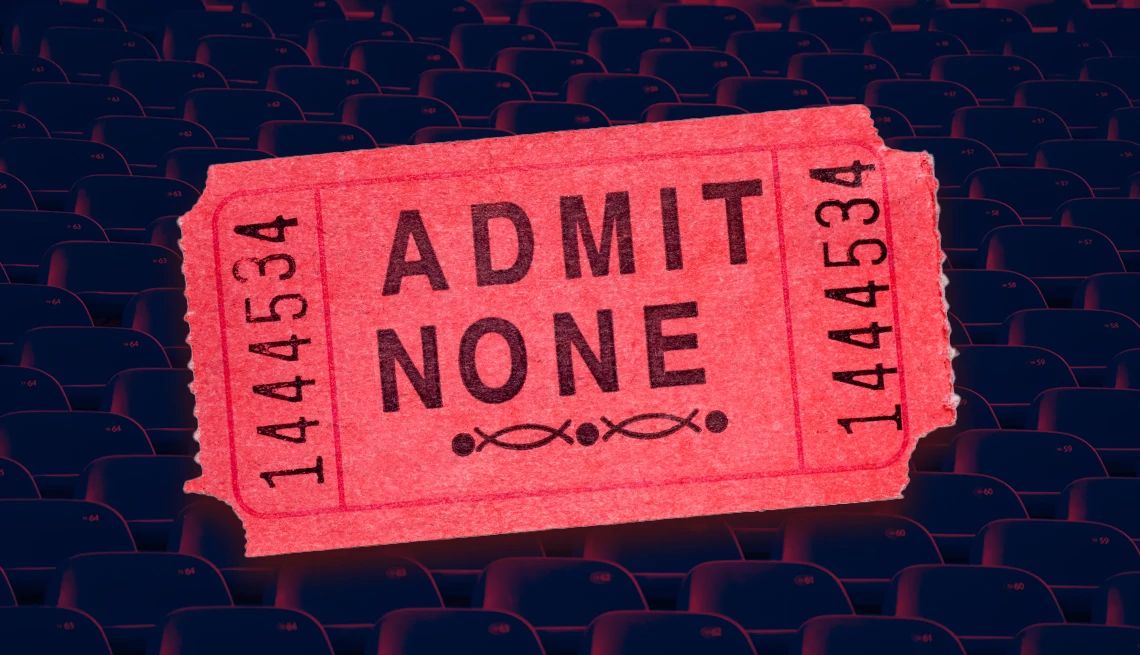AARP Hearing Center


Suburban Detroit resident Lisa Turner is a veteran concertgoer who’s been to more than 1,000 shows over the past few decades — somehow managing to find tickets to performances by wildly popular artists like Billy Joel, Elton John and the Rolling Stones. So when her teenage daughter was eager to see Taylor Swift, Turner was sure she could score a few seats to one of the star’s two Detroit shows.
First she tried using her credit card’s presale access to tickets — usually a dependable method. But with so many Swifties also on the hunt, she had no luck..
Next, she talked to various people offering tickets on Facebook, but she wasn’t convinced they were legit.
Finally, as the shows neared, Turner found a seller on Craigslist. When she talked to him on the phone, she said, “He sounded very trustworthy and nice and personable. He didn’t give me any kind of weird vibes or anything.”
Kevin, as he called himself, even offered to send Turner a digital ticket in advance before she paid him so she could check it out. Sure enough, she soon got a notification on her husband’s iPhone, and downloaded “a very realistic-looking ticket” into the Apple Wallet app — which Kevin claimed he needed to use because he got error messages when he used the Ticketmaster app, the usual method.
Satisfied, Turner sent the man a total of $1,200 on an online payment app for four tickets — for her daughter and three friends — for the Friday concert.
But then, on the day of the show, she suddenly started wondering if the deal had been too good to be true. After trying unsuccessfully to verify the tickets online, she finally drove to the stadium box office. That’s where she got the bad news. “Unfortunately, these are not real,” one of the workers there told her, while also noting that the fakes were “the best we have seen.”
Meanwhile, Kevin suddenly vanished, his phone number disconnected.
Increase in use of digital tickets has made buying online risky
Scammers take advantage of the fact that paper tickets are being increasingly replaced by digital tickets purchased online, downloaded into a phone app and then presented for scanning at the arena gate.
While digital ticketing makes it easier for fans, it’s also convenient for criminals. Instead of having to print counterfeit tickets and peddle them on a dark street corner, the scammers can sit at home and post ads for nonexistent tickets on online marketplaces. And it’s relatively easy for scammers, using consumer-grade graphic design software, to create a fake digital ticket with convincing-looking graphics, says Teresa Murray, head of the Consumer Watchdog office for the U.S. PIRG Education Fund.





































































More From AARP
'Pig Butchering’ Scams Lure Victims Into Fake Investments
The terrible term describes a key tactic for criminals perpetrating investment and romance scams
Read This Before Accepting a Stranger’s Check
Fake-check scams flourish, as criminals take advantage of the delay before a payment clears
Five of the Biggest Scams to Watch for in 2025
Old frauds don't disappear — they become more sophisticated. Here are a handful of scams that experts say you should know heading into the new year.